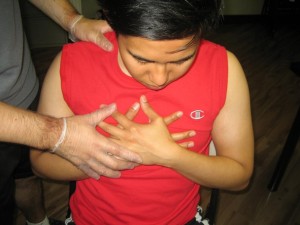The persistent dripping of mucus down the rear part of the throat can become an annoying issue if it becomes chronic. Remember that postnasal drip is a usual symptom of mold allergy since an allergic reaction to mold can cause nasal complications among highly sensitive individuals.
https://www.youtube.com/watch?v=ev88wuG1olY
When it comes to chronic postnasal drip due to mold allergy, it is effectively managed by preventing exposure to mold. It is recommended to schedule an appointment with a doctor to determine if immunotherapy or allergy shots are one of the recommended forms of treatment.
What is mold allergy?
If an individual is highly sensitive or allergic to mold, the immune system is overly sensitive to the mold spores. Once the individual inhales or ingests the mold spores, the immune system overly reacts and initiates an attack using the immunoglobulin E antibodies. The IgE antibodies trigger the mast cells to generate histamine which is a chemical that causes dilation of the blood vessels and increases the flow of blood. This action causes itchiness in the eyes, mouth and throat as well as nasal congestion, sneezing, coughing and runny nose.

Close look on postnasal drip
The histamine released in the sinus cavity causes inflammation and swelling. The inflamed nasal cavity blocks the drainage of mucus and normal breathing via the nostrils. Take note that histamine also causes the mucous membranes to produce excess mucus that can block the sinuses. Since the mucus could not drain from the nostrils, it drips down the rear of the throat. In addition, postnasal drip can cause coughing, bad breath and a feeling of a lump in the throat.
Treatment
The management of mold allergy involves removal of all visible molds both indoors and outdoors. All you have to do is use bleach and water solution when eliminating mold. Run an air purifier in the house to minimize the amount of airborne mold spores. Just make sure that the air purifier is regularly cleaned. In addition, avoid foods that contain mold such as dried fruits, cheeses and sauerkraut.
Over-the-counter medications that are commonly used in managing allergic rhinitis include decongestants, antihistamines and pain medications. A doctor should be consulted before using any medications.
What are allergy shots?
Allergy shots can help eliminate postnasal drip due to mold allergy. These shots utilize a small amount of the allergen that is introduced into the body. Over time, the doctor increases the amount injected which steadily desensitizes the immune system to the hypersensitivity. This form of treatment can provide permanent results in some individuals.
Once an individual is diagnosed with mold allergy, it is vital to avoid exposure. Since mold typically thrives in moist areas in the house, these areas should be regularly cleaned. Individuals who are highly sensitive to mold are no longer at risk for inhaling or direct exposure to the spores.
